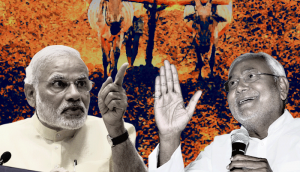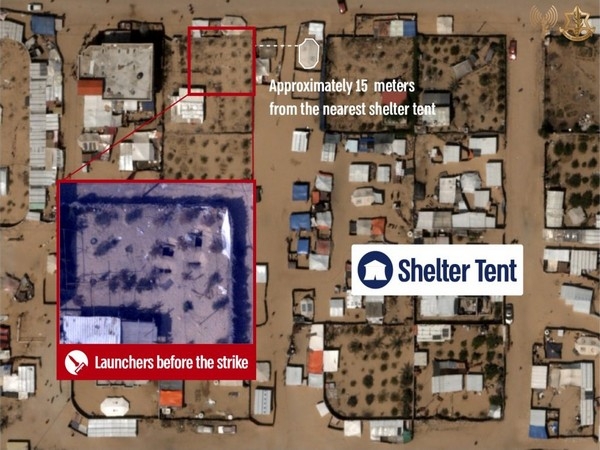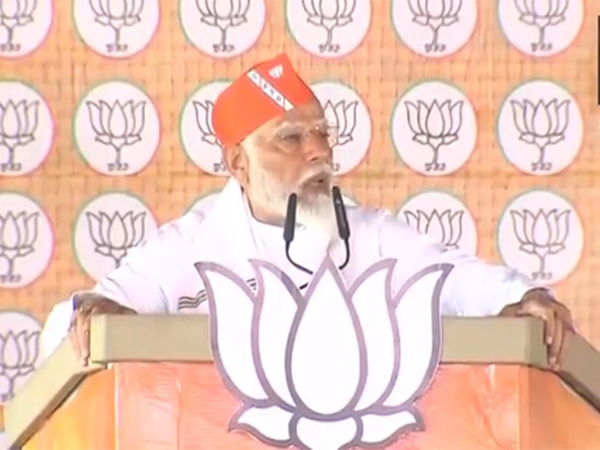
Banning porn seems to be in vogue. In the past two years, Iceland attempted to install a 'Chinese-style' filter to prevent access to online porn, Egypt began putting together a list of pornographic websites to block, the UK announced an opt-in system designed to shame and embarrass porn viewers, and the European Parliament considered banning porn across all media.
Update: Media reports are coming in that the government has banned several porn sites in India. Anticipating this, Catch had run a series of interviews and spoken to prominent Indians about why pornography should not be banned and why it has a legitimate place in society.
India is no stranger to this anti-porn tide. In July 2014, a Mumbai-based Jain priest filed a petition with the Rajya Sabha to 'put a check on cyber pornography', which was around the same time the Supreme Court started seriously considering Kamlesh Vaswani's 2013 petition to ban the viewing or sharing of porn. Towards the end of last year, it started becoming clear that the government's position on banning porn was bypassing 'if' and 'why', and arriving straight at 'how'.
The good news is that not everyone is taking it lying down.
Several of us have publicly argued that a porn ban would restrict free speech and invariably end up reducing our internet freedoms. That's because stopping people from watching porn online can happen in one of two ways: creating a blacklist of websites to be blocked or developing a filter based on keywords.
Read more: filmmaker Reema Kagti on why not just porn, even absolute smut has a right to exist
Both these methods are hugely flawed, given that nowhere in the world does a comprehensive definition of 'pornography' exist. So one man's porn is another women's sexual health website is another person's LGBTQ Facebook page.
The keywords present an even worse possibility, because imagine the sheer number of pages that would be blocked if we started filtering out the word 'sex'. My Twitter timeline would definitely not make the cut. And once we get into which incorruptible public servants will be deciding what sexy stuff is okay for public consumption and what needs to go, we've pretty much reached the dead end of the porn-ban tunnel, which is arguably also the end of internet democracy.
Saying we don't want to ban porn because we don't want to ban anything just isn't enough
But here's the thing. The free speech defence can only take us so far, because all it does is tell us is why we shouldn't ban porn - it doesn't tell us why we should keep it. It circumvents the heavy breathing, mutual-fondling realities of consuming porn, and dives straight into the wider democratic principles at stake. Which in some ways makes sense, because who really wants to tell a government consultation meeting what you're getting off to in front of your computer?
But the truth is, if we don't get into the nitty-gritties of why watching porn matters - of why we like it - we'll never be able to make a really compelling case for why it's worth defending. Saying we don't want to ban porn because we don't want to ban anything just isn't enough.
Flattening the landscape
To begin, let's drop the myth that pornography is a single 'thing'.
Porn is the name we give to a range of erotic material spanning fiction, photography, films, art, and even text messages. This is important not only because it makes banning porn nearly impossible, but also because we're going to end up banning an entire discourse. A large umbrella of erotica that includes your favourite steamy DDLJ fanfic (Raj/Ajit, anyone?), the sext you sent your girlfriend from the office yesterday, and yes, those XXX videos diligently cleared from the browser history of your family computer. As a medium, porn encompasses a range of things, and if we don't ban all of Bollywood every time one of its blockbuster films gifts us yet another servile woman or depicts gratuitous violence, there's no reason the same logic shouldn't hold true for porn.
But it's different, you say. It's sex.
Exactly! It is sex, and it should be sex that we're fighting to protect. In a country where little to no sexuality education exists, porn is one of the first places where digitally connected young people learn about sex.
Sure, mainstream porn doesn't often portray the most gender-equal, realistic or diverse sexual relationships, but it's still a place for teenagers to learn about something that is typically shrouded in taboo and silence. Over-acted, too-bright, liposuctioned action is still better than no action at all; it is better than countless young people having zero reassurance that sexual pleasure is even a possibility in their lives.
For queer and disabled people living under regressive socio-legal systems, porn is often the only sex on offer
Also, while mainstream (aka white, heterosexual) porn acts as the face of all pornography, its realities are more complex. In growing pockets of the digital porn world, alternative narratives of sex and sexuality are perpetually being developed. For people whose sexualities may be marginalised or deemed perverse, these spaces can be lifesaving.
Last year, Meera Kumar wrote a fabulous piece for Yahoo! Originals on how Indian BDSM social networks allowed her to experience sex that actually turned her on. She writes, 'Before this online platform, my earlier encounters with just plain sex (or 'vanilla sex' as it's called) were initially good, and later fraught, mostly with my lack of desire. I'd begun to wonder if I was just simply asexual. [But] within a few days of my registering on the site.I had to admit that I wasn't asexual - or at least, not virtually.'
Similarly, for people who live with a range of disabilities or for queer folk living under the weight of regressive socio-legal systems, porn and virtual sex are often the only types of sex on offer. And instead of diminishing these experiences by labelling them as less worthy than 'real' sex, we should celebrate and encourage spaces that allow for a range of sexual possibilities.
What do women want
But porn isn't just for the young and curious or those whose sexualities are pushed to the margins of what is heteronormatively-acceptable. For tons of women stuck in relationships where the quality of sex is below average (and global statistics of female sexual satisfaction indicate that these numbers are very large), porn is an incredibly important avenue of expression. Data released by the popular website Pornhub in November 2014 ranked India in 4th place in terms of the largest number of viewers, and identified 25% of these visitors as women.
This cannot be stressed enough: Indian women, hamari bharatiya naris, are watching, reading, and even creating porn. The anti-porn argument on which Indian courts are acting often rests on the idea that watching porn leads to violence against women. But this line of thinking, apart from being unsupported by any studies that demonstrate a causal link, assumes that the only people watching porn are men. Depraved, perverted men, who will go on to harm our pure, homely women. In reality, well over a quarter (and I suspect nearly a half) of these sex-crazed, porn-loving human beings are the very women we're trying to 'protect'.
Censoring sex in the name of women's rights generally ends up curbing women's sexual agency, and this is no less true of porn. For example, the UK government recently banned a bunch of sex acts in porn, which included face-sitting and female ejaculation, but not their phallic counterparts, blowjobs and cumshots. Who exactly is being protected here, and from what?
Women are also porn-makers. As the rise of amateur and homemade porn videos and the growing popularity of women's erotic fanfic demonstrate, Indian women are not just passive consumers of men's porn. In their own, undoubtedly smaller spaces, they are writing their own narratives of sex and desire, and though they may not label it as such, making their own pornography.
No glossing the greys
Of course all is not rosy in the porn universe. Abuse occurs not when men are turned into rapists (really, it just doesn't work like that), but when consent is violated.
Consent during sex, consent for filming, consent before distribution. And because we live in a gender unequal world, the victims of these violations do tend to be women. But violence against women occurs across industries, including in sex-working industries, where women are systemically stigmatised and devalued. We need to work to end this violence, but if the struggle for sex workers' rights has taught us anything, it's that banning sexual pleasure is not the way forward.
And that's what it comes down to: pleasure. The anti-porn argument rests on the idea that there is something inherently disgusting and immoral about the representation of sex, and by extension, about sex itself. In the preamble to his petition Kamlesh Vaswani writes, 'Pornography is a moral cancer that is eating our entire society every second across the country.'
Arguing against this self-righteousness with only the free speech defence might win us immediate legal battles, but will eventually lose us the war. Because this is a war about sex, and that's the battlefield we must meet them on. Let's counter the politics of disgust with the politics of desire, the narrative of violence with stories of pleasure, and let's start talking - about the porn we love, the porn we make, and the porn we want to see.








![BJP's Kapil Mishra recreates Shankar Mahadevan’s ‘Breathless’ song to highlight Delhi pollution [WATCH] BJP's Kapil Mishra recreates Shankar Mahadevan’s ‘Breathless’ song to highlight Delhi pollution [WATCH]](http://images.catchnews.com/upload/2022/11/03/kapil-mishra_240884_300x172.png)

![Anupam Kher shares pictures of his toned body on 67th birthday [MUST SEE] Anupam Kher shares pictures of his toned body on 67th birthday [MUST SEE]](http://images.catchnews.com/upload/2022/03/07/Anupam_kher_231145_300x172.jpg)


_251372_1280x720.jpg)
_251371_1280x720.jpg)


